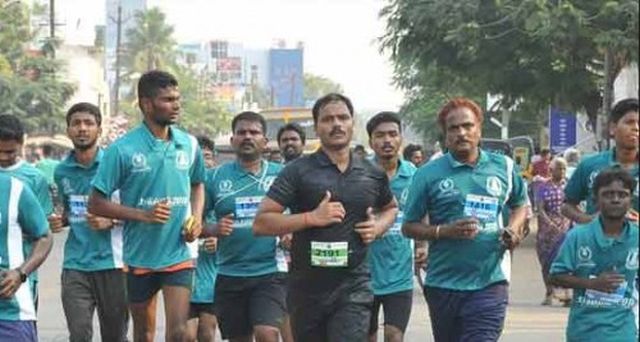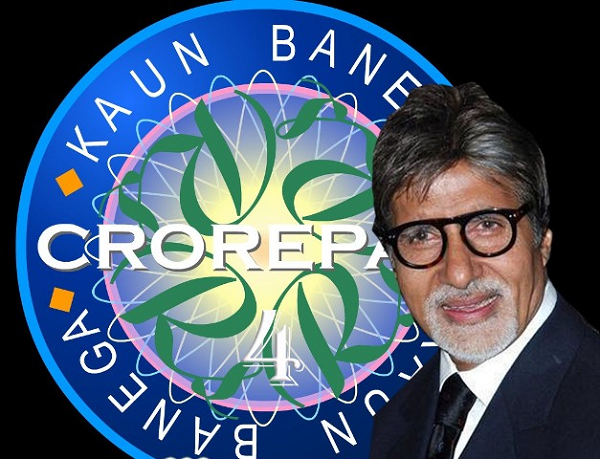
The (absent) CSR in Swachh Bharat
A Swachh marathon conducted by the Dettol company, Reckitt Benckiser, in collaboration with NDTV, as part of the Swachch Banega India project, takes the discussion on sanitation into the drawing rooms of the middle and upper classes. With brand ambassadors like Amitabh Bachchan hosting the show, people look up and watch.
Naina Lal Kidwai, Chair, India Sanitation coalition, an industry association “to bring organisations and individuals under one platform for promoting sanitation” speaks at the World Water Week in Stockholm on Swachh Bharat, pushing for higher budgets for water and sanitation, and stating that achieving ODF (open defecation free) is the collective responsibility of the entire nation, not just the government.
Beyond this glamour and highly-published events, however, what is the real contribution of the corporate world to Swachch Bharat?
It is not easy to answer this question. There is lack of consolidated data on the contribution of the corporate world to Swachh Bharat. A portal on the website of the Ministry of Housing and Urban Affairs provides for collection of information in this regard — which remains unfilled. Maybe the portal did not get publicised enough for every one to know about it. Even if it was, would information have trickled in?
FICCI, at the beginning of Swachh Bharat, made tall commitments to the Prime Minister’s Office on its intention of contributing to the movement. Two years down the line, it remains non-responsive on the fulfilment of those commitments.
The only worthwhile contribution made centrally by the corporate sector was in the field of school toilets — and that too mostly by the public sector undertakings (which probably had little choice).
At the decentralised levels of districts and states, the corporate sector might have helped in Swachh Bharat, though one does not get to hear very many examples. In Sibasagar, corporates responded well to Collector Virendra Mittal’s call to “donate a toilet”. In Ludhiana, Bharti Airtel built a number of toilets for the people. In hindsight, many of those toilets were built without carrying out concomitant behavioural change, and therefore their use remained doubtful.
The government initiated a Swachh Bharat Kosh, a Trust for collecting contributions from individuals and corporates and deemed the contributions a valid CSR activity exempt from income tax. Still, contribution to this Trust remaines lukewarm.
Two things seem critical for a genuine contribution by the corporate sector to Swachh Bharat. One is belief in, and understanding of, the community approach propagated by Swachh Bharat. Two, a readiness to plug the “missing gaps” in the overall ODF plan of the district administration.
The former has happened to an extent. The term ODF is now widely used, and the community approach is ingrained in the ODF concept itself. Its understanding, however, may vary and there is something amiss when a company offers to construct “x” number of toilets as a stand-alone activity. Bereft of a community behaviour change plan, this may not bear fruit, and money will — literally — go down the drain.
Secondly, the ODF plan for a village comprises multiple activities. A company may take up, in consultation with, and upon suggestion by, the district administration, any of these activities. In case no such plan exists, or if the plan is deficient in terms of behavior change component, it may not shy away from proactively calling upon the administration to make/rectify such a plan. And participate only when such a plan is in place.
Besides these two issues, there can be a few more pitfalls. One is the desire for returns in lieu of contributions. Many a times, such a desire is in the form of creating genuine goodwill towards the company. This, however, restricts the geographical area where the corporate can contribute. Promotion of one’s own brand sometimes takes precedence over work, belying the general principle of service propagated by Sant Tukdoji Maharaaj in Gramgita: True service is not for one’s own name. He who is selfish is not a true servant.
Sometimes, Swachh Bharat is slated as a “business opportunity”. “People make a lot of money dealing in shit,” it is said. The Economic Times carried a headline on December 23, 2016: “Dettol maker Reckitt Benckiser rides on Swachh Bharat, posts handsome growth of 14%”. Another company, after spending some CSR funds for sanitation, wanted the ministry to promote their appliances. While sanitation may have benefitted a few people, one needs to understand whether the primary motive of Swachh Bharat is to change the behaviour of people, leading them to adopt safe sanitation practices, or to promote some business models, benefiting a few.
In the former approach, companies dealing with sanitation products may anyway benefit; however, that will be incidental and not primary to the cause. In the latter approach, the focus may shift to artificial reasons for insanitation — such as lack of good technology — and behaviour change will take a back seat. This may lead to profits for some companies, but no improvement in sanitation. A shared value, that good sanitation benefits all, can be the mantra for everyone, including corporates. And that is immense.
There have been some worthwhile efforts by corporates. The contribution of Tata Trust must be mentioned. It sponsored a young professional — called Zilla Swachh Bharat Prerak — to work in each district of India and help the Collector achieve an ODF district. Although there was some scepticism about the usefulness of this initiative earlier, the enthusiasm, energy and fresh ideas of these young professionals seem to have greatly helped the programme.
Collaboration with corporates requires a renewed push. Despite some odd references to the role of some corporates in the freedom struggle, one does not come across any significant testimony to support the premise that corporates did play a major role in that struggle. A freedom struggle from shit is now happening. And this history will again be written. One hopes corporates will not let go this opportunity.
(Nipun Vinayak is former director, Swachh Bharat Gramin, Government of India. He is currently writing a book on Swachch Bharat. Views expressed are personal. He can be contacted at vinayaknipun@gmail.com and tweets @vinayaknipun)
—IANS


